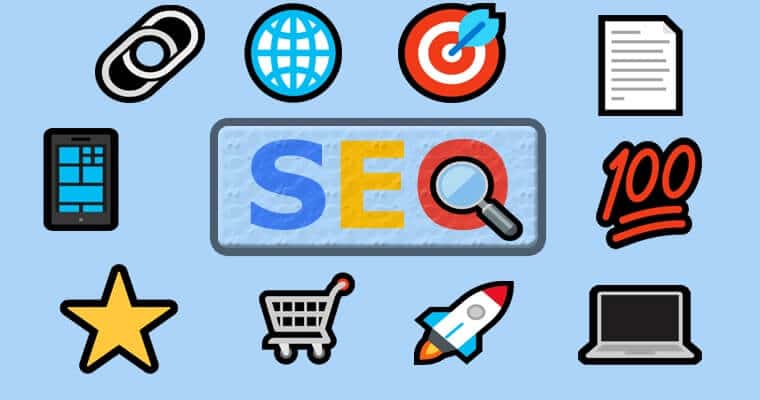
If you’re just starting to explore the world of digital marketing, you might feel a little confused. There are so many marketing channels out there, and it can be hard to know where to begin.
Making things even more challenging is that most of these channels have acronyms or abbreviations that aren’t immediately obvious. And yes, one of those channels is called SEO (search engine optimization).
SEO allows businesses to reach potential customers looking for similar products and services. It’s a technique that helps websites appear higher in search engine results when users search for related words or phrases. You can utilize small business SEO services for optimal results in reaching potential customers. Enlisting experts versed in small business SEO is guaranteed to improve your rankings while you are still learning the ropes of search engine optimization.
Whether you have an established business or are just getting started, best SEO practices will help your brand connect with potential customers in new ways.
If you’ve never heard this acronym before, read on for a quick breakdown of what it stands for and why it’s essential for your business.
What Is SEO and Why Does it Matter?
As highlighted earlier, SEO stands for “search engine optimization.” It is a strategy for increasing the amount of traffic to your website or blog through organic search engine results.
If your website is properly optimized for search engines, your business can benefit in several ways. For starters, more traffic will come to your site. This increased footfall can lead to more sales leads and a higher conversion rate, which will positively affect your bottom line.
It can also help grow your reputation, build your online brand and strengthen your online presence. This might lead to more leads, more customers, and even more revenue in the future as people discover, share and reuse your content.
Another essential thing to remember about SEO is that it’s a long-term strategy. Many people jump into SEO because they want immediate results, but this isn’t the case. There’s a great deal of behind-the-scenes work that goes into optimizing a website for search engines, meaning it can take anywhere from a few weeks to several months to see any significant results.
The Importance of Small Business SEO
SEO is an essential part of digital marketing since it involves optimizing a website or blog so that it may appear at the top of the organic search results for relevant keywords.
When people search for products or services online, about 80% of them click on one of the top three search results. If your website is not at the top of the list, you’re losing out on many potential customers.
Another factor that makes SEO such a valuable marketing investment is that it’s relatively inexpensive, has a low barrier to entry and is sustainable over the long term. SEO also has a high return on investment (ROI), which makes it a precious marketing investment.
SEO is also an essential part of boundary-extending marketing strategies such as email, social media, and more. When integrated successfully, the results can be very beneficial to the business.
The Differences Between SEO and SEM
Now, as you try your hand at SEO, you should expect to come across something referred to as SEM (search engine marketing).
While both are digital marketing strategies that involve optimizing your website for search engines, there are some critical differences between the two.
For one, SEO is a long-term strategy focusing on growing your web traffic over time. On the other hand, SEM is a short-term tactic that focuses on driving immediate results.
SEO is a strategy that can be used to achieve a wide range of outcomes, such as growing your web traffic, increasing your conversion rates, growing your brand, and more. On the other hand, SEM is used to achieve one specific outcome: drive more clicks to your website.
How to Achieve Great SEO Results
If you want to utilize SEO to maximum effect, the first thing you’ll need to do is create a content strategy.
You’ll want to think about the types of content you’ll produce and how often you’ll publish. This will depend on your industry, your target audience, and the goals of your website.
You should publish helpful, engaging, and relevant content to your readers while including keywords that will help you rank higher in search engines. A good rule of thumb is to have one to two keywords per article, but not more.
You’ll also want to optimize your title, summary, and URL. Additionally, ensure you have a keyword research tool such as Ahrefs or SEMrush to discover which keywords are the most popular in your industry.
Once you’ve created your content, you need to ensure it’s properly optimized for search engines. This can be done through various techniques, such as adding your keywords to your URL, including them in your title, including them in your summary, using HTML tags, and more.
The Bottom Line
SEO may be one of the oldest digital marketing channels, but it’s still one of the most important.
If you want to bring in new visitors, you need great SEO. And if you’re going to stay competitive in your industry, you need to keep up with SEO best practices.
While achieving great SEO results does take time, it’s an investment worth making for your business. With the right SEO strategy, you can bring in more traffic, strengthen your brand and boost your conversion rates, which will positively affect your bottom line.